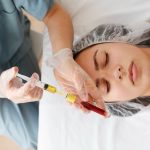Mesa Biotech, Inc, developers of an affordable, easy to use, handheld testing platform for infectious diseases diagnosis, today announced it has been awarded a contract up to $15.4 million from the National Institutes of Health’s (NIH) Rapid Acceleration of Diagnostics (RADx) program for its Accula™ SARS-CoV-2 Test, which gives COVID-19 diagnostic results in 30 minutes at the point of care (POC). The RADx program was established to extend the range and increase the availability of diagnostic tests for SARS-CoV-2, a critical component to safely getting Americans back together, including in the workplace, in schools and in life’s many venues.
“This is an exciting milestone,” said Bruce Tromberg, Ph.D., Director of the National Institute of Biomedical Imaging and Bioengineering and leader of RADx Tech, one of four components of the NIH RADx initiative. “It will help increase U.S. testing capacity exponentially. Game-changing technologies emerging from our RADx pipeline will inform public health measures to stop the spread of the virus and leave us better equipped to address future pathogens and other diseases.” This project is supported by the NIH Rapid Acceleration of Diagnostics (RADx) program and has been funded in whole or in part with Federal funds from the National Institute of Biomedical Imaging and Bioengineering, National Institutes of Health, Department of Health and Human Services, under Contract No. 75N92020C00014.
Using a rigorous, rapid-review process, the RADx program provides independent evaluation of the technologies and the potential to scale. Over 650 proposals have been submitted to date with seven being fast-tracked to RADx’s Phase 2, which is the final stage of the process. Testing technologies (like the Accula™ SARS-CoV-2 test) that progress to Phase 2 receive an appropriate budget from the RADx program to enable full clinical deployment on an accelerated timeline, as well as technical, business and manufacturing assistance.
“We are humbled by the confidence and support that we have received from the Federal government and honored to be among the select group of initial companies to enter Phase 2 of the RADx program,” said Ingo Chakravarty, President and CEO, Mesa Biotech, Inc. “We continue to diligently work for the American people to increase supply for near-term COVID-19 testing, as well as innovate game-changing solutions to fight the current pandemic and future public health threats.”
Want to publish your own articles on DistilINFO Publications?
Send us an email, we will get in touch with you.
One of the goals of the RADx initiative is to expand SARS-CoV-2 daily testing capacity to approximately two percent of the U.S. population (6 million persons) by December of this year compared to 520,000 – 823,000 tests per day in early July. Technologies that reduce the facility footprint, decrease testing complexity, and provide rapid results are of particular interest.
The Accula SARS-CoV-2 Test is a visually read test using reverse transcription-polymerase chain reaction (RT-PCR) technology to detect SARS-CoV-2 via nasal swab samples. The Accula SARS-CoV-2 Test is easy to use, fits in the palm of your hand and provides laboratory-quality results in approximately 30 minutes. Its compact design is ideal for use at the point-of-need, including temporary screening facilities, back to work initiatives, hospitals, clinics and long-term nursing facilities.
Mesa Biotech’s technology was developed at Los Alamos National Lab supported by NIH grants from the National Institute of Allergy and Infectious Diseases (NIAID) and the Western Regional Centers for Excellence in Biodefense and Emerging Infectious Disease programs. The company received funding from the U.S. Health and Human Services for development of its SARS-CoV-2 test and emergency use authorization from the U.S. Food and Drug Administration in March of this year. Since its inception, the company has focused on technology suited for emergency defense and rapid deployment for SARS, Ebola and other emerging infectious diseases. Mesa Biotech’s platform was specifically designed for use outside the lab to enable rapid responses to global pandemics, such as COVID-19.
Source: Biospace








